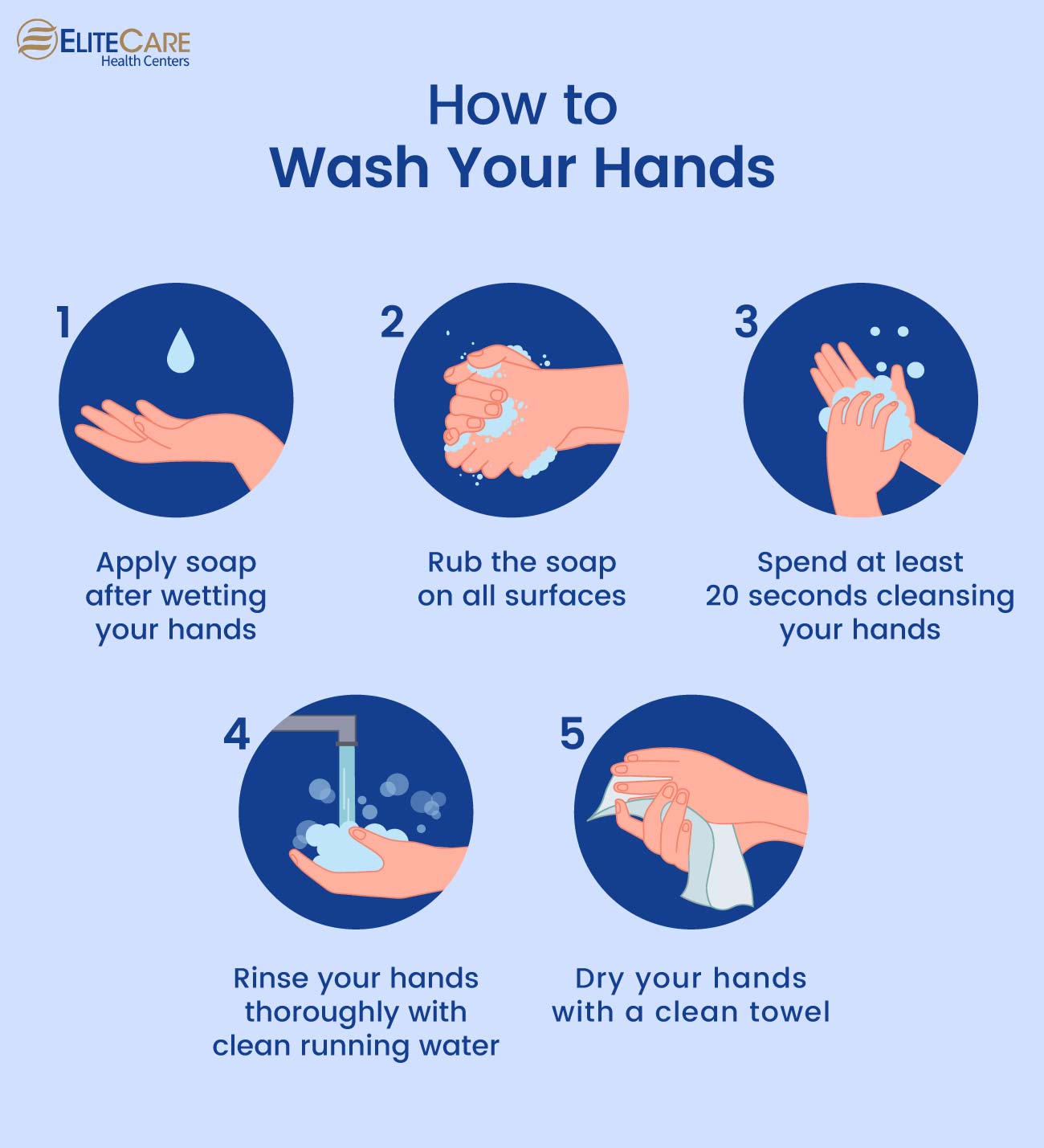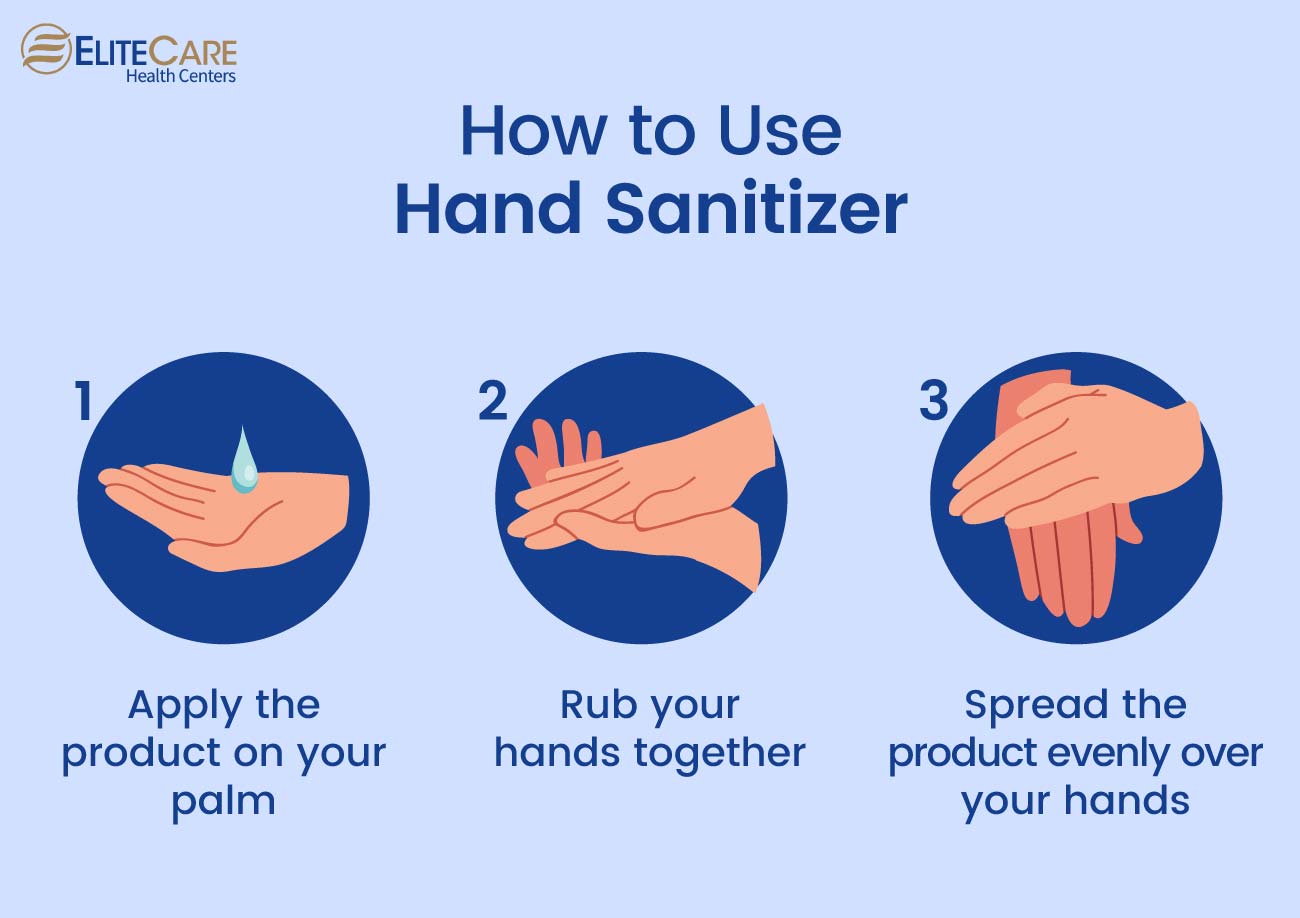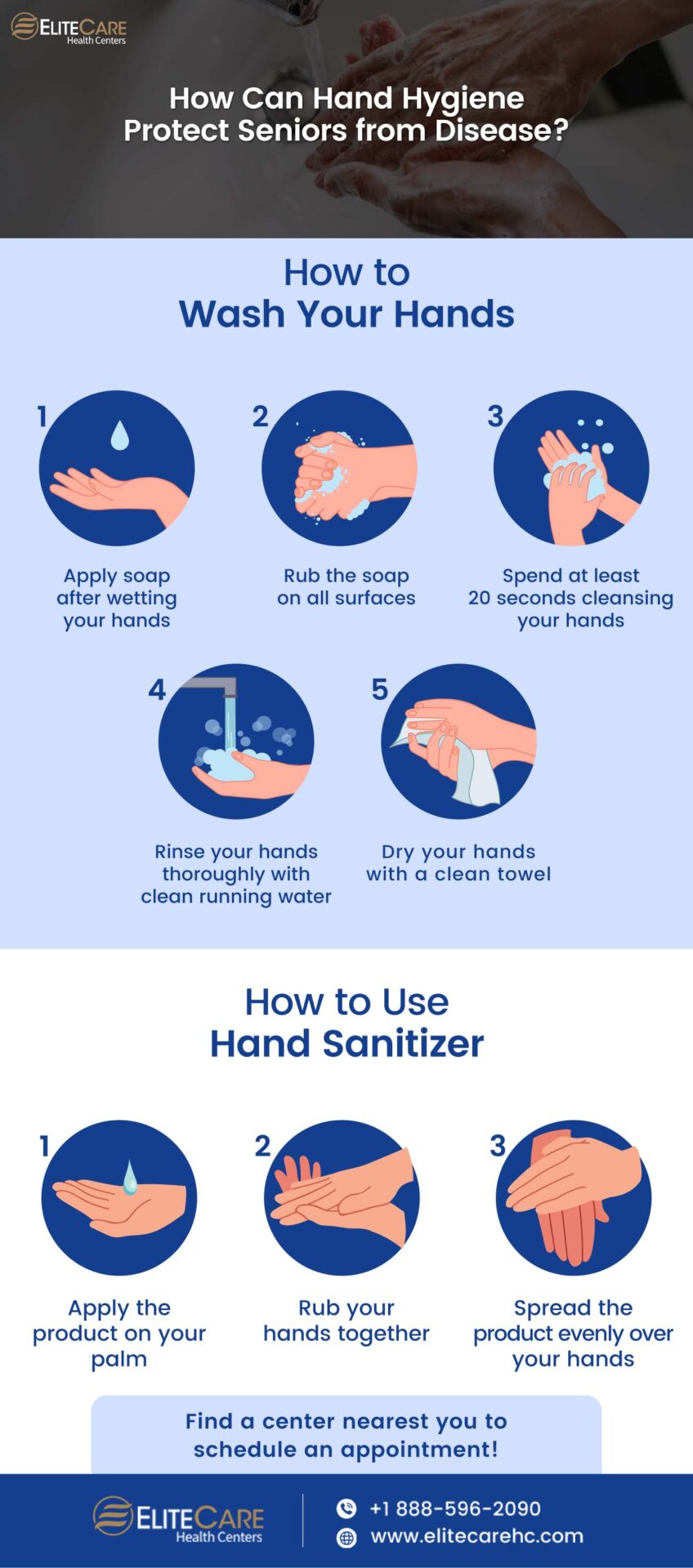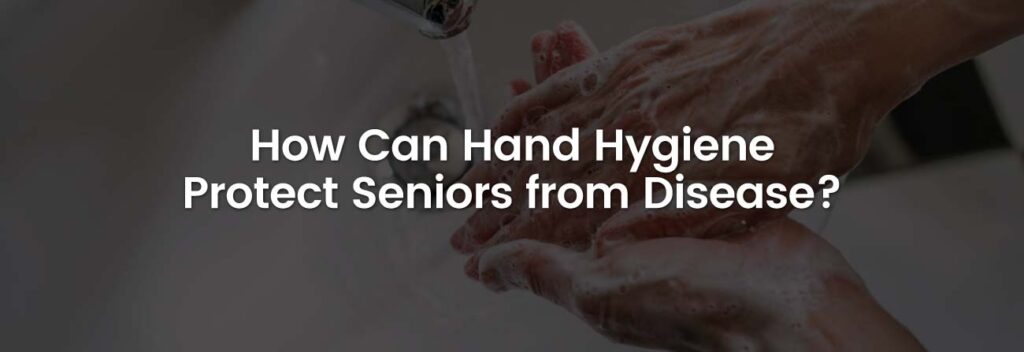
Research by the Centers for Disease Control and Prevention indicates that 1 million deaths a year could be prevented if everybody routinely washed their hands properly. That’s quite a number, isn’t it?
Global Handwashing Day is fast approaching so let’s talk about the importance of hand hygiene today, especially for seniors. Global Handwashing Day*, which takes place on October 15, is a day of campaigning around the world intended to raise public awareness of the value of using soap and water to wash hands to prevent disease and save lives. “Clean hands are within reach” is the topic for Global Handwashing Day in 2023.
Why is Washing Hands Important?
Our hands may be the most used part of our body. They play a role in every activity that we perform throughout our day. We encounter germs mainly through our hands. Hence, it is essential to practice hand hygiene practices consistently
How do germs spread?
We come into contact with countless germs each day. Bacteria and viruses can cause illness if basic personal hygiene isn’t practiced. The transmission of dangerous bacteria can be stopped with proper hand hygiene. We come into contact with germs in plain sight, such as after using the restroom, touching unwashed food, and socializing with others. Bacteria can be found on shopping carts, light switches, doorknobs in public areas, and even currency.
It is true that only a small portion of germs cause disease, but four out of five germs do cause illness and are commonly spread by our hands. More so when they are not frequently washed with soap and water.
These germs are commonly transferred by hand. In reality, touch is the primary cause of 80% of infectious diseases. Even clean hands can contain microscopic dirt that enters the mouth, nose, eyes, and finally the body – since it is undetectable.
When mucus or droplets containing respiratory viruses enter your body through your eyes, nose, or throat, they spread throughout your body, such as the coronavirus illness (COVID-19). The virus can commonly be simply transferred from one person to via hands.
Washing your hands frequently with soap and water is one of the simplest and most inexpensive ways to stop the spread of a virus.
Read More: Do’s And Don’ts For Healthy Nails
Your nails are also an important part of hand hygiene, as they are a point of entry for bacteria. Because of this, you should regularly file and trim your nails. Keep your cuticles moisturized and your fingernails clean to avoid any infections.
Read More: Why is Nail Care Important?
Why is Hand Hygiene Extra Important for Seniors?
Your immune system slows down and is less resistant to illnesses as you grow older. Seniors’ health may be seriously impacted by this, particularly if they have ongoing medical issues. The transmission of dangerous bacteria must be stopped with proper hand hygiene.
Community handwashing education decreases respiratory infections including the common cold, pneumonia, and the flu by 16% to 20%, according to the Centers for Disease Control and Prevention (CDC). According to the CDC, older adults make up between 70 and 85% of seasonal flu-related fatalities. Knowing when to wash your hands and how to wash them correctly can help you prevent the spread of germs.
The common cold is a result of viruses entering the body. A virus is a type of germ that can infect a person and make them sick. The growth of germs inside the body can lead to infections. The common cold is caused by more than 200 different viruses.
Handwashing prevents germs from entering the body. Often, we touch our eyes, noses, and mouths without realizing they can contain germs. As a result of germs entering the body through the mouth, nose, and eyes, we can become sick.
Vaccine effectiveness declines, and healing or recovery time increases with aging. Additionally, there is no vaccination for the common cold. Hence for the elderly, lowering the risk of getting a cold becomes even more important. To prevent colds and other diseases, seniors’ families and caregivers need to understand the importance of hand hygiene.
What is the Right Way to Wash Hands?
You can stay healthy and stop the spread of respiratory and diarrheal illnesses by washing your hands often. When you touch any substance or another person, germs can travel from one to the other. Maintaining clean hands can reduce the spread of germs from one person to another. Here are guidelines by CDC for hand hygiene.
For a handwash:

A five-step process should be followed.
- Apply soap after wetting your hands with clean, cold or warm running water and closing the tap.
- Rub the soap on your hands to create a lather. Spread soap beneath your nails, between your fingers, and on the backs of your hands.
- Spend at least 20 seconds cleaning your hands.
- Rinse your hands thoroughly with clean running water
- Dry your hands with a clean towel or let them air dry.
For hand sanitizer:

You can use an alcohol-based hand sanitizer with at least 60% alcohol if soap and water are not readily available.
Follow the following steps.
- Put the gel product on your hand’s palm (read the label to learn the correct amount)
- Rub your hands together
- Rub the gel all over the surfaces of your hands and fingers till your hands are completely dry
For detailed guidance on hand hygiene, consult a primary care physician.
Final Thoughts
People seek medical attention in the hopes of recovering. But all too frequently, patients wind up contracting a fresh, preventable infection that is commonly resistant to antibiotics and occasionally even fatal. Both patients and medical staff feel comfortable and taken care of when a facility’s “quality and safety atmosphere or culture” prioritizes hand cleanliness and infection prevention and control (IPC).
As a senior care service provider, we understand the fatalities of infections and therefore prioritize infection prevention and control at all our medical clinics. Call us at 1-888-596-2090 to schedule an appointment at the EliteCare Health Center located nearest to you.
* Retrieved from The Global Handwashing Partnership. (2023, July 12).






